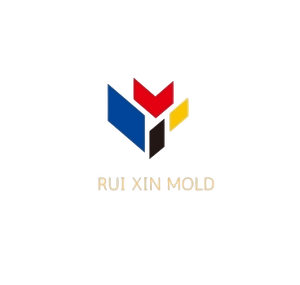Recent Posts
Tags

- Machining Parts Manufacturers
- Machining parts manufacturers specialize in producing precision components by removing material from raw stock using advanced manufacturing techniques. These manufacturers cater to industries requiring highly accurate, durable, and customizable parts, including aerospace, automotive, medical, electronics, and industrial machinery.
- Custom manufacturer of machine parts made from plastic, rubber, and fiberglass. Short and long production runs are available





Production Details
Capabilities:
- CNC Milling: For producing complex shapes and geometries.
- CNC Turning: Ideal for cylindrical or round parts like shafts and bushings.
- Drilling and Tapping: For creating holes and threads with precision.
- Wire EDM: Used for intricate cuts, fine details, and tight tolerances.
- Grinding: Achieves ultra-smooth finishes and exact dimensions.
Production Process:
- Design: CAD drawings and 3D models are provided by clients or created by in-house engineers.
- Material Selection: Chosen based on part requirements like strength, thermal properties, or corrosion resistance.
- Machining: Advanced equipment is used to produce parts with high precision.
- Surface Treatment: Options like anodizing, plating, or painting enhance durability and aesthetics.
- Quality Control: Manufacturers ensure accuracy through rigorous inspections, including CMM and other advanced tools.

Machining parts manufacturers commonly work with:
- Metals:
- Aluminum, stainless steel, carbon steel, brass, copper, titanium, and Inconel.
- Plastics:
- ABS, POM (Delrin), PC, Nylon, and PTFE.
- Special Alloys: High-performance materials for extreme environments, like aerospace and medical applications.
- Metals:

Applications
- Aerospace: Structural components, engine parts, and precision fittings.
- Automotive: Engine components, transmission parts, and custom prototypes.
- Medical: Surgical tools, implants, and diagnostic equipment components.
- Electronics: Heat sinks, housings, and connectors.
- Industrial Machinery: Custom parts for machines and tools.

Features
- Precision: Capable of achieving tolerances as tight as ±0.005 mm.
- Versatility: Handles a wide range of materials and complex designs.
- Scalability: Suitable for prototypes, small batches, or large-scale production.
- Durability: High-quality machining ensures long-lasting components.
- Customizability: Manufacturers can create parts tailored to specific applications

- .Dongguan Ruixin Precision Mold Company specializes in manufacturing high-quality injection mold components, including Mold Cavities, Mold Sliders, Mold Inserts, Mold Lifters, Guide Bushings, and more. With years of expertise, we deliver precision-engineered solutions tailored to meet the demands of modern industrial and manufacturing applications. Our commitment to quality, innovation, and customer satisfaction ensures that every component we produce enhances efficiency and product performance. Trusted by clients worldwide, we pride ourselves on reliability and attention to detail, making us a preferred partner in the precision mold industry
China CNC Precision Machining Factory
- At RUIXIN Precision Mold Company, we understand that every project has unique quality requirements. That’s why we offer a range of inspection services to ensure your parts meet the highest standards of precision and performance. Our inspection services can be tailored to your project’s needs—giving you the flexibility and confidence you deserve.

- Our Inspection Services:
1.Standard Inspection
2. Standard Inspection with Dimensional Report
3. CMM Inspection with Dimensional Report
4. First Article Inspection Report (per AS9102)
5.Source Inspection
6.Additive Part Inspections - Custom Inspection
If your project demands specific inspection requirements, we’ve got you covered. Our Custom Inspection option allows for additional services such as: - Non-destructive testing
Serialization
Custom sampling plans
Use of your provided inspection datasheets
At RUIXIN, your quality standards are our priority. We’re committed to delivering accurate, reliable inspection results that align with your project requirements.
What industries benefit most from machining parts manufacturers?
How do manufacturers ensure part quality?
Can machining parts manufacturers handle large-scale production?
What is the typical lead time for machining parts?
How do manufacturers reduce costs while maintaining quality?
Advantages and Challenges of CNC Machining

CNC milling and turning are highly accurate and repeatable processes. Tight tolerances between +/-0.001″ – 0.005″ can be achieved, depending on specifications. Machines can be programmed to reliably run for 24 hours, 7 days a week if necessary, so CNC milling is a good way of getting parts produced on demand.
Using standard tooling, a CNC machining service is particularly valuable for creating one-off parts, custom CNC parts, i.e., for replacing legacy components or delivering a specialized upgrade to a customer. It is also conceivable to scale single-part production to runs exceeding 10,000 units. Depending on the unit number, size, and complexity, the turnaround for CNC machined parts can be as short as one day. With shipping and delivery, deadlines can be met within a week.
One trade-off when taking advantage of the high performance of CNC machining processes is that geometric complexity comes at a cost. Simple, chunky parts are the best designs for CNC milling and turning. There will always be some design limitations due to tool access, although the degree of this effect is relative to the number of axes on the machine. In other words, the more axes used, the more complex the features can be achieved.
Another trade-off is that start-up CNC machining costs can be expensive. It is necessary to have a trained professional perform the setup, tool loading, and programming on CNC mills and lathes. Luckily this cost is fixed, so by taking advantage of the same setup for multiple parts, it becomes more economical. Saving money is also achieved by keeping part repositioning to a minimum. Machining at 5-axis and above can sometimes be more economical on multi-faceted geometries because it eliminates the need to manually reposition the part.





